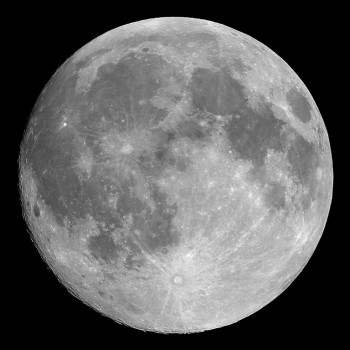
Aug 12 2010
The message below is authored by Imam Zaid Shakir, Islamic scholar and a co-founder of Zaytuna College, in which he shares with the reader some of the considerations that led to the change in the position of Crescentwatch on moon-sighting from the minority opinion of a regional sighting to the majority opinion of a global sighting.
بسم الله الرحمن الرحيم
In the Name of Allah, the Compassionate the Merciful.
Peace and blessings of Allah upon our Prophet Muhammad and his Family and Companions and all those that follow him.
Muslim scholars have long recognized that the only acceptable way for determining the beginning of the lunar month is by sighting the new crescent moon with the naked eye on the 29th evening of the month, or by completing a thirtieth day of that month if clouds or other atmospheric conditions obscure the view the horizon. This issue of moonsighting is particularly relevant for the timings of Muslim devotional seasons and festivals. The scholars have also held that there are two basic geographical limits governed by the sighting of the crescent moon: a regional sighting that is relevant for a particular region; and a global sighting, that is relevant for the entire world.
As for the naked eye sighting, this ruling is established on the basis of the unambiguous language of the prophetic utterance, “Do not fast [Ramadan] until you see the crescent moon, and do not break your fast until you see it.”[i] Similarly, “Begin fasting with its sighting [the crescent moon] and cease fasting with its sighting.”[ii] The latter hadith concludes with the phrase, “…and if it is cloudy complete Sha’ban thirty days.”
As for geographical limits that govern the sighting of the crescent moon, the difference of opinion surrounding this issue is well-known and goes back to the time of the Companions of the Prophet, peace and blessings upon him. Those arguing for a regional sighting, primarily scholars of the Shafi’i School, refer to the narration wherein Kurayb and Ibn ‘Abbas differed on the sightings of Damascus and Madinah. Ibn ‘Abbas rejected the sighting of the people of Syria, which had been witnessed by Kurayb, implying that the Prophet, peace and blessings upon him, ordered the rejection of a distant sighting.[iii] Opinions as to the definition of “regional” vary greatly among the jurists.
Those accepting that the entire world is governed by a single sighting point to the fact that there is a single lunar month for the world. The moon passes through its cycle from one month to the next as it revolves around the earth. This revolution is fixed and known although the actual sighting of the crescent moon demarcating the beginning of a particular month is problematic.
According to the global position, once the crescent moon has been sighted anywhere on earth that particular month has begun. Once the sighting of the crescent moon for the next month occurs the previous month has ended. However, in some parts of the world the sighting of the crescent moon, owing to geographical or meteorological conditions, may be delayed by a day or two. That does not mean that somewhere on earth that particular month has not begun. What people in those regions (where sighting is delayed) are in fact witnessing is the moon of the second or third day of that month, according to this latter view.
Adherents of this latter view thus argue that when the Prophet, peace and blessings upon him, mentioned, “Fast based on its sighting…” his order was to the entire Muslim Ummah based on the sighting of the crescent moon anywhere on earth. This position is based on the general nature of the wording of the hadith. This latter opinion is the majority opinion of the Hanbalis,[iv] Hanafis [v] and Malikis.[vi]
Concerning the timings of our sacred observances, our situation in North America is unique owing to the composition of our community. On the one hand there are Muslims representing almost one hundred national and ethnic groups in our community. On the other hand there is no universally recognized central religious authority. Despite of these realities, many Muslim organizations, though, have tried to adhere to a North American moon-sighting.
However, that effort has been largely unsuccessful, at a national level, for a number of reasons. First of all, the large number of Muslim ethnicities, with many groups of Muslims attempting to coordinate their sacred observances with Muslims in their home countries creates confusion. Secondly, there are significant numbers of Muslims who advocate a global moon-sighting, though usually limiting the timings of the sacred occasions to the timing determined by the religious authorities of Saudi Arabia. Recently, a significant number of Muslims, who do rely on moon-sighting, expanded their zone of acceptable sightings to include South America and the Caribbean. Finally, international political realities factor into the decision-making process of some Muslim organizations.
This situation has resulted in confusion, division and frustration for the average Muslim and most Islamic organizations. It has led to many Muslim communities and even individual families being divided and torn during times when they should be coming together in worship and or celebration. It has contributed to a lot of heartache and pain at a time when Muslims should be joyful. It has also led to an abandonment of the Sunnah of moon-sighting by growing numbers of Muslims and Islamic organizations.
In light of this situation, Crescentwatch has decided to change its position on moon-sighting from the minority opinion of a regional sighting to the majority opinion of a global sighting. It is hoped that this position will greatly enhance the possibility of Muslims who rely on verified moon-sightings being in harmony with the majority of the community while continuing to base the timing of the sacred occasions on the Sunnah of moon-sighting. In making this change Crescentwatch wishes its supporters to consider the following issues:
1. The efforts of North American moon-sighters will not be rendered irrelevant. As the Ramadan and the Hajj seasons move into the summer and spring months, the moon will be tracking across the Northern Hemisphere, and in coming years will likely be seen in North America before it is seen in South America. Hence, the importance of North American moon-sighters will become more significant.
2. Crescentwatch will still rely on the most accurate moon-sighting projections and probability charts as the basis to reject non-credible sightings.
3. Crescentwatch will encourage the training of qualified moon-sighters, internationally, and will work with known, reliable sighters in various countries to verify claimed sightings.
4. Crescentwatch will continue to work with its friends, allies and supporters to enhance the efforts and coordination between North American moon-sighters, regardless of their opinion concerning regional or global sightings.
5. Crescentwatch has not taken a position that is unfounded or unprecedented in the annals of Muslim history. Rather, as we have stated, the position we are adopting reflects that of a majority of the Muslim schools of legal thought.
6. Crescentwatch will publish an annual calendar based on the highest probability of a global sighting for a particular month in order to help Muslims better anticipate the sacred holidays while honoring the tradition of moon-sighting.
We pray that this message has helped to clarify our position on an unnecessarily contentious issue, and we pray this will lead to greater harmony between the Muslims of North America on this issue. We emphasize that this is an ongoing effort and we will seek to refine our position in light of the feedback and advice we receive from members of our community.
——————————————————————————–
[i] Bukhari, no. 1906
[ii] Bukhari, no. 1909
[iii] See Muslim, no. 1087. At the end of a lengthy narration, Kurayb asked Ibn ‘Abbas, “Are you not satisfied with the sighting of Mu’awiya and his fasting?” Ibn ‘Abbas responded, “No! Thus did the Prophet, peace and blessings upon him, command us (Hakadha Amarana Rasulullah).”
[iv] See Muwaffaq al-Din and Shams al-Din ibnu Qudama, al-Mughni (Beirut: Dar al-Fikr, n.d.), 3:10-13
[v] See Muhammad Amin “Ibn ‘Abidin”, Hashiya Radd al-Muhtar (Beirut: Dar al-Fikr, 1415/1995), 2:432-433
[vi] See Mubarak bin ‘Ali al-Ahsa’i, Tashil al-Masalik ila Hidaya al-Salik ila Madhhab al-Imam Malik, ‘Abdul Hamid bin Mubarak, ed. (Riyadh: Maktaba al-Imam al-Shafi’i, 1416/1995), 3:783
RELATED:
Crescentwatch Policy Change – Ramadan 2010 / 1431
http://www.crescentwatch.org/cgi-bin/Cw/cw.cgi?action=ART&subaction=viewdetails&articlesubmit=Go&a_id=8
Concerning the timings of sacred observances and lunar months in general, the situation of Muslims in North America is unique owing to the composition of our community. On the one hand, there are Muslims representing almost one hundred national and ethnic groups in our community. On the other hand, there is no universally recognized central religious authority. Despite these realities, many Muslim organizations have tried to adhere to a policy of North American moon-sighting for the determination of dates.
However, at a national level, that effort has been largely unsuccessful for a number of reasons. First of all, the large number of Muslim ethnicities, with many groups of Muslims attempting to coordinate their sacred observances with Muslims in their “home” countries, creates confusion. Secondly, there are significant numbers of Muslims who advocate a policy based upon global moon-sighting, though usually limiting the timings of the sacred occasions to the timing determined by the religious authorities of Saudi Arabia. Recently, a significant number of Muslims, who do rely on moon-sighting, expanded their zone of acceptable sightings to include South America and the Caribbean. Finally, international political realities factor into the decision-making process of some Muslim organizations.
This situation has resulted in confusion, division and frustration for the average Muslim and most Islamic organizations. It has led to many Muslim communities and even individual families being divided and torn during times when they should be coming together in worship and or celebration. It has contributed to a lot of heartache and pain at a time when Muslims should be joyful. It has also led to an abandonment of the Sunnah of moon-sighting by growing numbers of Muslims and Islamic organizations.
In light of this situation, Crescentwatch has decided to change its position on moon-sighting from the minority opinion of a regional sighting to the majority opinion of a global sighting. It is hoped that this position will greatly enhance the possibility of Muslims who rely on verified moon-sightings being in harmony with the majority of the community while continuing to base the timing of their sacred occasions on the Sunnah of moon-sighting. Crescentwatch has also decided to release an annual calendar of probable lunar dates based on this global position to assist in limiting the confusion mentioned earlier.
We pray that this message has helped to clarify our changed position on an unnecessarily contentious issue, and we pray this will lead to greater harmony between the Muslims of North America on this issue. We emphasize that this is an ongoing effort and we will seek to refine our position in light of the feedback and advice we receive from members of our community.
Sincerely,
Crescentwatch






